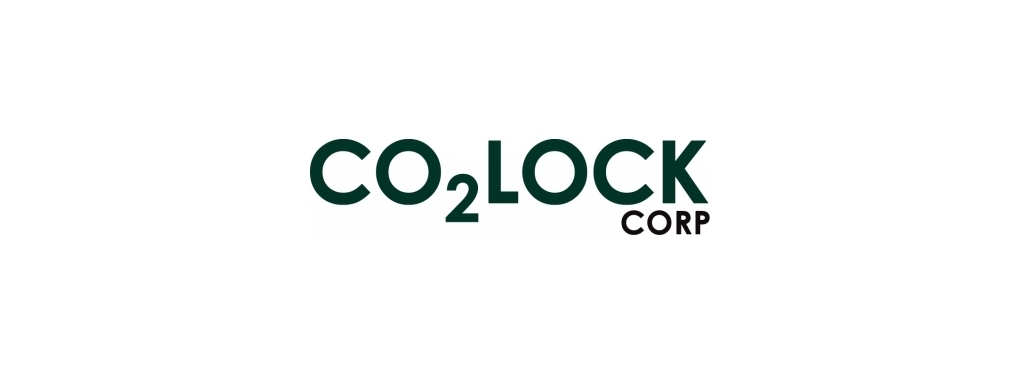Vancouver, British Columbia--(Newsfile Corp. - March 23, 2023) - CO2 Lock Corp. ("CO2 Lock" or the "Company") is pleased to announce the completion of a suite of test work focused on permanently storing carbon dioxide in brucite and brucite-rich serpentinized peridotite ("BRSP") rock. This initial test work builds upon six years of lab and field research performed by FPX Nickel ("FPX") at the Decar Nickel District ("Decar"), a BRSP deposit in central British Columbia and is designed to fully characterize the kinetics, reaction rates, and sequestration potential of BRSP deposits for standalone carbon capture and storage ("CCS") projects. Experiments utilizing rock and water samples from multiple BRSP deposits to mineralize CO2 were very successful, and results will incorporate into additional test work as the Company works towards detailed technoeconomic analysis ("TEA") and Life Cycle Analysis ("LCA"). The Company has acquired mineral tenure on a BRSP deposit in central British Columbia; certain samples for this test work are from this site.
"I'm very excited to see this first phase of work complete," said CO2 Lock's CEO, Cooper Quinn. "The initial results from our samples continue to show the reaction rate of brucite is significantly faster than silicate mineral-based carbon mineralization, and that BRSP is a superior host to other rock types like basalt. We believe the superior reaction speed and capacity of brucite will lead to low-cost, permanent, verifiable carbon storage with significant advantages over nature-based and other geologic solutions. Much of the data and research by FPX, the University of British Columbia and others on ultra-mafic based carbon mineralization and sequestration has been limited by access to mine tailings; at CO2 Lock we're exploring several pathways to commercialization utilizing BRSP for standalone CCS project development and this kinetic test work is an important step towards fulfilling that goal. We're able to maximize CCS potential of these rocks on a stand-alone basis by varying input parameters unconstrained from mining and metallurgical necessities. I'm very pleased with the progress and look forward to a very full year of work in the lab and the field at our project site."
Background
CO2 Lock is focused on commercializing CCS projects within BRSP, with an initial project site selected in central British Columbia for evaluation, sample material collection for experimentation and pilot scale work, and field trials. The Company is working on three pathways to commercial CO2 storage utilizing BRSP deposits; ex-situ rock, ex-situ water, and in-situ rock. All three pathways utilize labile magnesium cations which combine with CO2 to form stable carbonate minerals. Both ex-situ pathways involve processing material from BRSP deposits above ground, mixing rock or water with CO2 through various processes, and generating carbon minerals at surface. The in-situ pathway involves injecting CO2 rich water into BRSP deposits at depth; this process is similar to Project Orca in Iceland where a joint venture between Carbfix and Climeworks utilize basalts to permanently mineralize CO2 in-situ.
Summary of Work
This test work was performed at BC Research Inc. ("BCRI") and their Technology Commercialization and Innovation Center. BCRI is part of a group of companies vertically integrated to provide clients with a unique technology development and commercialization ecosystem in the industrial area of chemical, petrochemical, and clean-tech processes and technologies. BCRI brings together a multidisciplinary team of scientists and engineers to support clients' goals to move processes and technologies from bench scale to pilot plant scale.
In the fall of 2022, a large sample of very alkaline water was collected from Decar for quantification and test work. Experimentation at BCRI consisted of bringing this water, which contained high magnesium and calcium cation concentrations and exceeded pH 11, in contact with CO2. Labile cations bonded with CO2 in the aqueous phase, causing precipitation of solid, stable carbonate minerals, locking away CO2. The initial test work completed by the Company aligns with expectations, showing carbonate precipitation does occur and is sensitive to variations in pH, initial water chemistry, and other parameters. Notably, some water samples began precipitating solid minerals spontaneously in the field, when brought in contact with the atmosphere, demonstrating the potential for efficient kinetics in the carbon mineralization reaction.
Rock-based test work comprised a number of dissolution and mineralization experiments on BRSP rocks collected from CO2 Lock's initial project site near Prince George, BC and focused on characterizing brucite-CO2 reaction kinetics, CO2 consumption rate, brucite dissolution, and quantifying labile magnesium under different initial conditions. Results showed that under ambient conditions the BRSP sample rapidly reached maximum magnesium liberation in less than a minute, confirming brucite is among the most reactive minerals. After the rapid dissolution associated with the brucite content of the sample, the magnesium liberation continues at a lower rate, an indication of potentially significant CO2 mineralization contributions from other minerals commonly found in BRSP deposits. The Company is undertaking a systematic approach to improve magnesium liberation and CO2 mineralization performance characteristics.
This bench-scale testing was performed on samples weighing less than a kilogram; planned work through 2023 will upscale this significantly through hundreds of kilograms with surface and sub-surface BRSP from CO2 Lock's tenures. The pilot tests at the scale of mineralizing kilograms of CO2 per test are planned to be conducted in summer 2023, with continued scale up through tonnes in 2024.
The outcomes of the bench-scale testing have been used to develop and validate a computer model of mineralization and development of process flowsheets for storage facilities. Additionally, this experimental work is being combined with previous data to develop computer models for comprehensively capturing the real-world CO2 mineralization capacity of rocks and water associated with BRSP deposits. This model will be utilized to determine the total mineralization potential of CO2 Lock's initial project site, potential future acquisitions, upcoming technoeconomic analysis ("TEA") and Life Cycle Analysis ("LCA") work as the Company moves towards field deployment and testing. The Company will incorporate this work into LCA work and TEA scheduled for later in 2023, which will be key work in determining which of the multiple paths to commercializing BRSP for CCS the Company chooses to advance through to pilot and field demonstrations.
About CO2 Lock Corp.
On March 30, 2022, FPX announced the formation of CO2 Lock to pursue geoscience-related CCS opportunities. Building on five years of laboratory and field research conducted with partners including UBC and Natural Resources Canada, CO2 Lock is focused on developing CCS operations in geological settings worldwide with similarities to FPX's Decar Nickel District. CO2 Lock has established ownership interests in prospective mineral tenures and is developing intellectual property associated with the operation of CCS sites worldwide.
CO2 Lock's vision is to commercialize the CCS potential of ultramafic brucite-rich serpentinized peridotite host rocks, with a mission to license or construct and operate commercial CCS projects capable of permanently and profitably locking away hundreds of millions of tonnes of CO2 per year at scale. In pursuit of this objective, CO2 Lock will execute exploration and engineering activities to advance the development of large-scale carbon operations capable of mineralizing carbon dioxide in these rocks and associated carbon-depleted waters both at-surface (ex-situ mineralization) and underground (in-situ mineralization). CO2 Lock's website is accessible at www.co2lockcorp.com. For more information, please contact Cooper Quinn, CEO, at [email protected].
Carbon Capture and Storage (CCS) will play an important role in achieving Net Zero 2050 in Canada and globally. In a 2021 Navius Research report found that achieving net zero emissions in Canada will likely require significant use of CCS technology, with Canada's CCS industry growing to be 30-100 times its current size by 2050. CO2 Lock intends to develop and operating CCS projects that are large-scale, highly verifiable and permanent carbon storage.
For more information, please view the Company's website at www.co2lockcorp.com, or contact Cooper Quinn, CEO, at (778) 986-8192.
On behalf of CO2 Lock Corp.
"Cooper Quinn"
Cooper Quinn, CEO
Forward-Looking Statements
Certain of the statements made and information contained herein is considered "forward-looking information" within the meaning of applicable Canadian securities laws. These statements address future events and conditions and so involve inherent risks and uncertainties, as disclosed in the Company's periodic filings with Canadian securities regulators. Actual results could differ from those currently projected. The Company does not assume the obligation to update any forward-looking statement.

To view the source version of this press release, please visit https://www.newsfilecorp.com/release/159578







